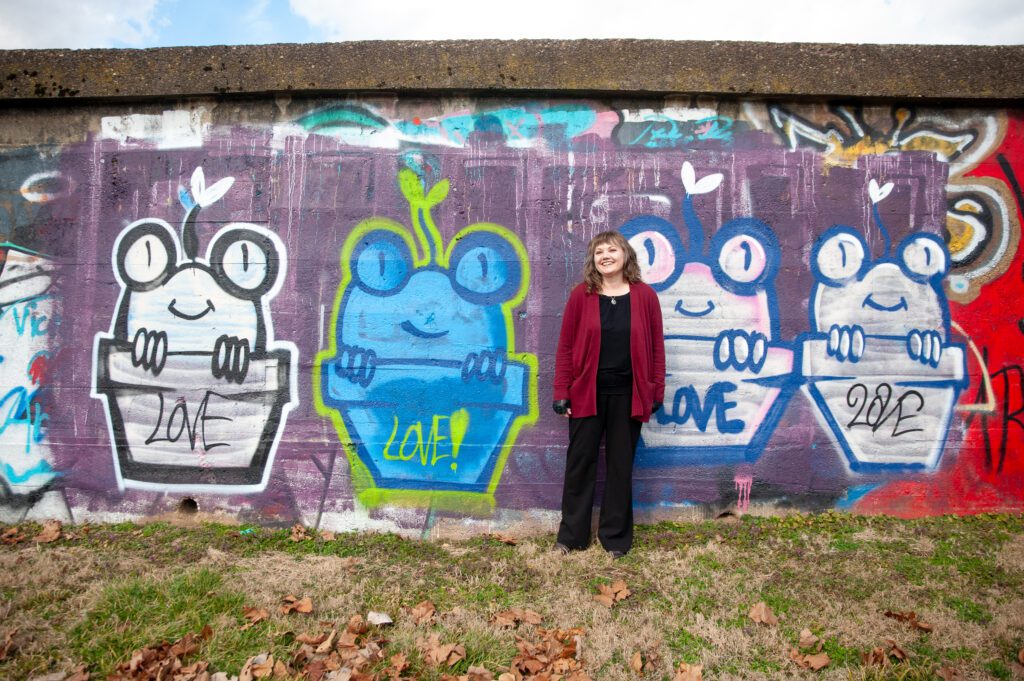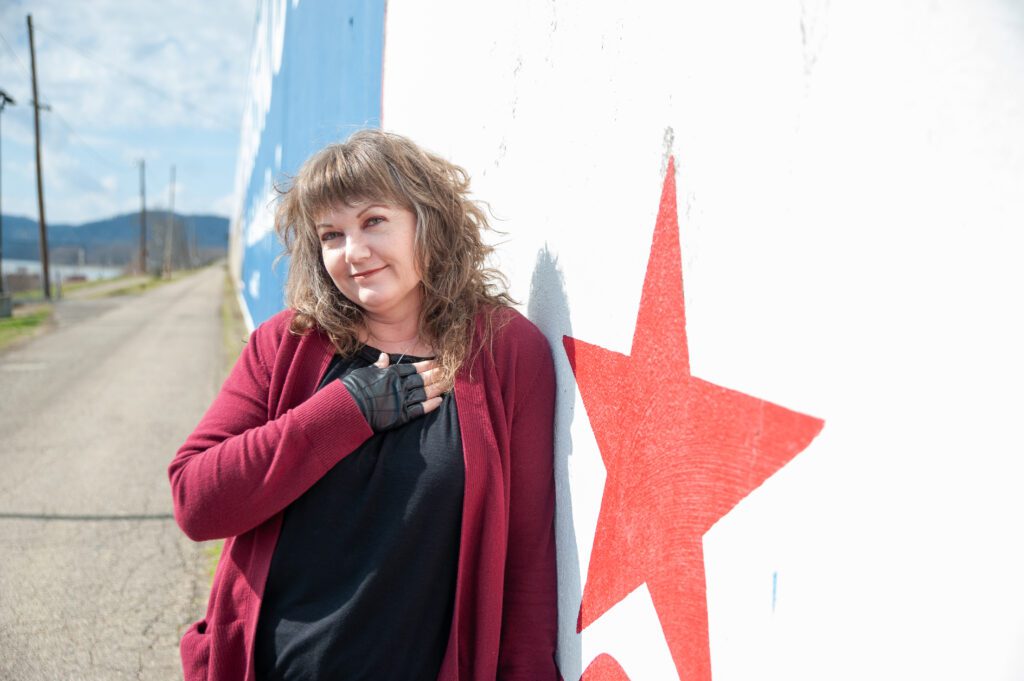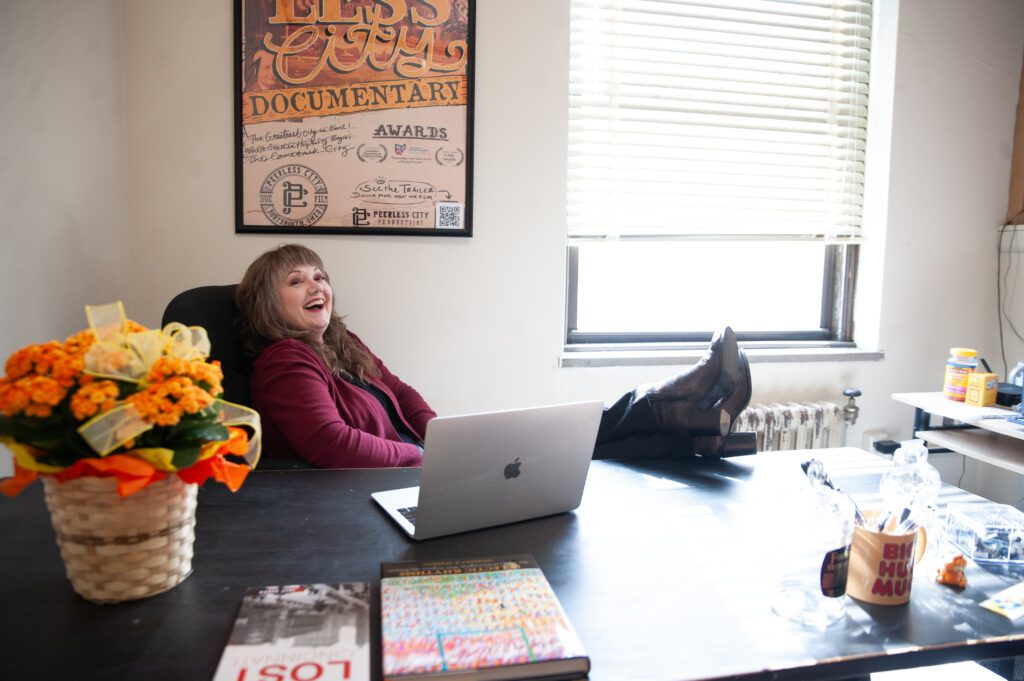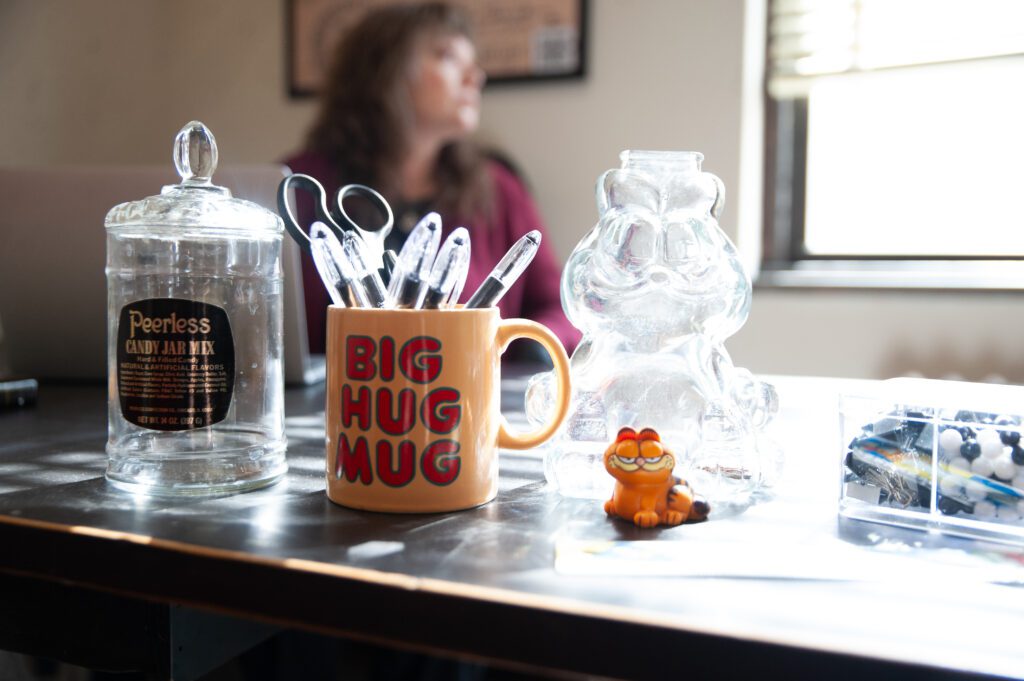“I was reading an article in Belt Magazine and it mentioned a film called Moundsville, a documentary about Moundsville, West Virginia. I watched it and loved it. It was such an interesting portrait of a place. I started talking about it on Twitter, and one of the directors, John Miller, reached out and we began messaging back and forth.
We ended up talking on the phone and I said, ‘Now let’s do one for Portsmouth.’

I grew up in Portsmouth, in a little area called New Boston. The steel mill was there for many years, and we had an amusement park with a roller coaster that was literally in a lake bottom. We would come down all the time and go to the bookstore or the department store with a lunch counter. There was a hustle and bustle here in the 90s. I watched all of that go away and began looking at Portsmouth as a place to leave.
So I left.
I went to Ohio State, graduated from Ohio University in Athens, went back to Columbus, and then moved to Alabama for graduate school. I was interested in Hollywood in high school, so after Alabama, I moved out to LA. I hit all the spots, saw all the Hollywood stars I wanted to, and after I did all of that, I was like, ‘How much longer do I have to live here?’ So I moved back and into a friend’s 100-year-old farmhouse on a 200-year-old family farm, about a 40-minute drive from Portsmouth.
And I was floundering. I was teaching part-time in Portsmouth, driving 40 minutes back and forth, writing part-time as a stringer for the local paper, and having no idea what was going to be next. Then I got a full-time job at the University, flipped a house with my dad, met a guy, moved to Cincinnati, and then back to Columbus.
During this time, I developed an interest in things like regional culture, slogans, and placemaking.

A year before I saw Moundsville, my brother had told me how Portsmouth used to be known as ‘Peerless City’, and I had no idea. Then I watched the film, told John Miller, ‘Now let’s do one for Portsmouth’, and David Bernabo came on as a director for our documentary, Peerless City.
Portsmouth was built on the banks of the Ohio River, brimming with industry and opportunity, and surrounded by the natural beauty of the foothills of Appalachia—a ‘peerless city’.
I almost immediately knew what I wanted to do: look at the past, present, and future of Portsmouth through the lens of the city’s two nicknames, ‘Peerless City’ and ‘Comeback City’, and its slogan, ‘Where Southern Hospitality Begins.’
Portsmouth was built on the banks of the Ohio River, brimming with industry and opportunity, and surrounded by the natural beauty of the foothills of Appalachia—a ‘peerless city’. Businesses adopted the name: Peerless City Motors, Peerless City Baking Powder, and even a Peerless City Skating Rink. But in 1937, Portsmouth experienced a flood that devastated the city and it began to decline.

Then, in the 1960s, Frank Gerlach was the mayor of Portsmouth and he felt the city needed a new slogan. He suggested, ‘Where southern hospitality begins’ and in 1965, it was officially adopted. On one hand, it made sense because the city is the last stop in Ohio along US 23 as it heads into Kentucky, a most definitely southern state. But not a lot of people engaged with it because we’re in Ohio, most definitely *not* a southern state, so it’s a bit of a strange slogan to have, right?
Portsmouth, like many other cities, continued to experience economic decline and the population dwindled. We had a lot of parachute journalists who came here, labeled Portsmouth as Ground Zero for the opioid epidemic, and never quite got it right. So a handful of the people who stayed wanted to change the narrative and started a group called Friends of Portsmouth. They began doing events to tell the world that Portsmouth was coming back, and people started using the unofficial nickname of ‘Comeback City’.
So the central question of the documentary became: what role do these nicknames and slogans serve in crafting the identity of Portsmouth?

I wanted to show Portsmouth to itself and to the world, so I spent two months looking at it with documentary eyes…and falling in love with my hometown again.
There was a moment where David and I were having dinner at a brewery that’s in the film. We walked outside after and heard music, so we started walking towards where it was coming from. The sun was setting over the bridge, and the music was someone playing a trumpet near the motorcycle club.
When I told my mom about it, and I don’t remember the guy’s real name, my mom said, ‘Oh, that’s Kenny. Don’t you know him? That’s how Kenny praises God, with his trumpet.’
That’s how you fall in love with your hometown.
So, we finished the documentary…and decided to premier it in Portsmouth.

I was nervous. We really didn’t shy away from anything in the film. There were some hard things said—and people from the community were going to be there hearing them. There were some things said about the ‘Southern hospitality’ slogan and I knew Frank Gerlach, who came up with the slogan, was going to be there.
So, I was sitting on stage before the showing, looked out into the crowd and thought, ‘This is crazy.’
I let go of any angst of negative feelings I had towards my hometown…and it opened the door to me thinking, ‘Maybe I should move back.’
I was nervous about how it would be received, and after the film, I went onstage to answer questions…when Frank Gerlach stands up, and I’m terrified about what he might say.
And he said, ‘I believe in giving good work a cheer,’ and got the audience to stand up and yell, ‘Hip, Hip, Hooray!’

I about fell off the stage. I was really afraid that he was going to be hurt, but then he did that. It felt warm, I let go of any angst of negative feelings I had towards my hometown…and it opened the door to me thinking, ‘Maybe I should move back.’
I spent the next summer in Portsmouth. I started to come back more and more often, and then in January, I bought a house.
I had both houses for a few months, but Portsmouth was where my life was happening. I was trying to recreate Portsmouth in all these different cities and neighborhoods I lived in, but it was already here the whole time.”

“Scioto Literary supports area writers and storytellers, celebrates the distinctive cultures of Ohio, Kentucky, and West Virginia, and shares compelling stories about Central Appalachia with the world. The wider goal is to also try and solve some of the area’s problems through literary means. For example, nurturing writers here opens up economic and civic development opportunities by building a creative workforce.
Just like some kids like football or building things, some kids like poetry and writing, and we’re creating a pathway for them.
I was a shy kid who wasn’t interested in sports, but I was interested in the arts and did my first poetry reading at the museum during high school. They had a residency with Diane Kendig, a poet from Findlay, who came down for a week. I did all these workshops and spent time with her, and that was my first time seeing a working artist. Had I not seen that making a living as a writer was possible, I may never have become one.


Building a creative workforce is important for everyone. Just like some kids like football or building things, some kids like poetry and writing, and we’re creating a pathway for them.
What can you do with an English degree? Build an empire, and that’s what we want to show them.”
—Amanda Page, Scioto Literary
Portsmouth, Scioto County
#WeAreOhioSE




